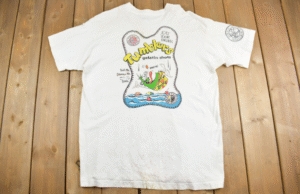
Have you ever wondered if those little orange swimmers in your aquarium are edible? It seems absurd to think about eating your favorite pet goldfish, but the truth is that fish have been consumed as food for centuries. In this exhaustive guide, we will dwell deeper into the sphere of goldfish consumption by examining its history, cultural significance, health implications and ethical considerations.
Goldfish known scientifically as “Carassius auratus” belong to a group of freshwater fishes that are commonly kept as pets in home aquaria and outdoor ponds. Though they serve primarily as ornamental fishes, some cultures have embraced the idea of using them for food. Such factors like survival needs or culinary curiosity or socio-cultural traditions have all contributed to the question “Can You Eat Goldfish?” that has intrigued many.
Can you really eat goldfish?
Yes, you can eat goldfish simply put. But rather than ask whether one could consume them, it would be best to know if doing so is advisable. Technically speaking goldfish are edible although this raises concerns due to their size and other inherent dangers of consuming such tiny creatures.
From a biological perspective, goldfish being a type of carp, however similar to many other fish types, is safe for human consumption once properly prepared and cooked.
History of eating goldfish
In many cultures around the world, the practice of eating goldfish dates back hundreds of years. For example, in China and Japan, goldfish have been part of traditional cuisine for many generations. In Japan, for instance, goldfish were historically consumed during the Hinamatsuri festival, also known as Girls’ Day as a symbol of good luck and prosperity.
In Western countries though there was much notoriety for eating a live goldfish which became a sort of bizarre novelty act or frat house prank notably in America between 1930s-1940s. Despite its controversial nature, this practice persisted resulting in debates over animal rights and public health issues.
Health considerations when eating goldfish
Before considering goldfish as a potential food source, it’s crucial to understand the potential health implications associated with their consumption. While goldfish are generally safe to eat when properly prepared, there are several factors to consider:
- Contaminants: Goldfish that are kept at home or sold by some pet shops may be exposed to different waterborne pollutants such as chemicals or drugs that might accumulate and cause health complications when consumed.
- Parasites and Diseases: Like any other living organism, goldfish can harbor parasites or diseases that may be transmissible to humans through consumption. Proper cooking and handling procedures are essential to mitigate these risks.
- Nutritional Value: Goldfish are relatively small and have limited nutritional value compared to larger fish species. Thus, they may not provide substantial amounts of important nutrients like protein, omega-3 fatty acids, and vitamins.
- Allergies: Like any other foodstuff, some people may be allergic to goldfish or experience adverse reactions from eating them.
Cultural perspectives on eating goldfish
Different cultures and traditions bear the practice of eating these fish. For example in certain Asian cultures, goldfish are seen as lucky omens for fertility which means that during certain festivals or rituals the fish are consumed.
However, in Western societies consuming goldfish has often been regarded as more of a novelty or dare than as part of gastronomic tradition.
Recipes and dishes that use goldfish
While the idea of eating goldfish may seem unconventional, various cultures have incorporated these tiny swimmers into their culinary traditions. Here are a few examples of dishes that feature goldfish:
- Goldfish Fritters: In some Asian cuisines, goldfish are battered and deep-fried until crispy before being eaten as an appetizers or snacks
- Goldfish Soup: Goldfish can be used in soups as a base ingredient bringing out a unique flavor and texture.
- Goldfish Dumplings: There are areas in China where goldfish is ground together with other ingredients into delicious dumplings.
- Goldfish Sushi: This means that these types of fish have been used as fillings for sushi rolls among Japanese but makes a very special sushi variation.
- Fishcake: Goldfish which have been ground can be mixed with breadcrumbs, herbs, and spices to make cakes or croquettes that can be fried or baked.
Conclusion: Should you eat goldfish?
After discussing different aspects of eating goldfish, it all remains your decision whether to eat them or not. Even though these fishes are technically edible, there are several ethical, cultural and nutritional issues which must be taken into consideration before incorporating them into our meals.
The final decision whether to consume goldfish or otherwise should be approached with an open mind taking into account cultural traditions as well as ethical and sustainable considerations. If you want expert advice then visit Goldfish Tank.
Have you ever wondered if those little orange swimmers in your aquarium are edible? It seems absurd to think about eating your favorite pet goldfish, but the truth is that fish have been consumed as food for centuries. In this exhaustive guide, we will dwell deeper into the sphere of goldfish consumption by examining its history, cultural significance, health implications and ethical considerations
In Western countries though there was much notoriety for eating a live goldfish which became a sort of bizarre novelty act or frat house prank notably in America between 1930s-1940s. Despite its controversial nature, this practice persisted resulting in debates over animal rights and public health issues.
Goldfish known scientifically as “Carassius auratus” belong to a group of freshwater fishes that are commonly kept as pets in home aquaria and outdoor ponds. Though they serve primarily as ornamental fishes, some cultures have embraced the idea of using them for food. Such factors like survival needs or culinary curiosity or socio-cultural traditions have all
read also:https://deepcyclenews.co.uk/







